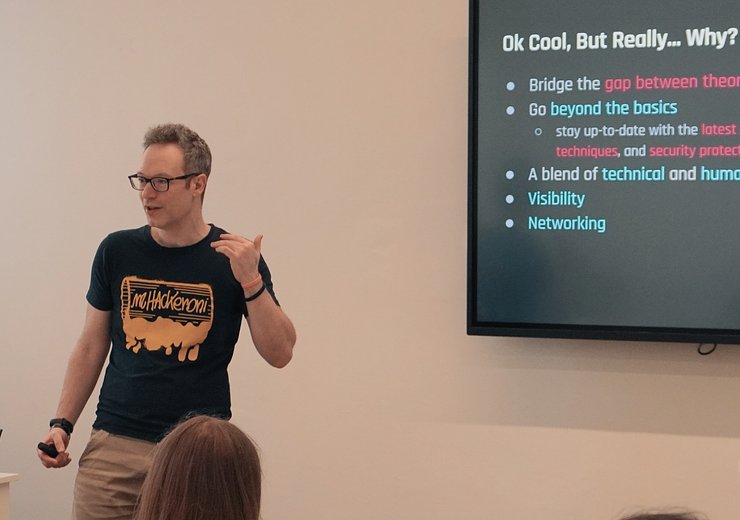Game On: It’s Time to Hack (Ethically)!
In the Bebras Computing Challenge context, Marco Squarcina and Carlotta Tagliaro offered an exciting workshop on ethical hacking to high school students.

In a recent educational endeavor, high school students were introduced to the intriguing world of ethical hacking, courtesy of our Cybersecurity Center and Security and Privacy research unit. The workshop, led by Marco Squarcina and Carlotta Tagliaro, delved into the critical and fascinating aspects of cybersecurity, demonstrating how the next generation of IT security defenders is being prepared. The fact that no prior experience was required to participate in the workshop made it accessible and inclusive to all interested students, underscoring the event’s objective: to ignite curiosity and enthusiasm for cybersecurity among young minds.
Workshop on Ethical Hacking
Aligned with the objectives of the Bebras Challenge—an international competition that promotes informatics and computational thinking among school students—the workshop aimed to foster a deeper understanding of cybersecurity threats and defense mechanisms. It provided a comprehensive introduction to capture-the-flag (CTF) competitions, a cornerstone in cybersecurity training that simulates real-world security challenges that professionals face.
Through a series of hands-on challenges, the participants were encouraged to think like hackers—a crucial perspective for anyone aspiring to defend digital assets against cyber threats. This approach not only demystified the hacking process but also highlighted the ethical considerations and responsibilities that come with such knowledge. The workshop was not limited to technical skills alone. Squarcina and Tagliaro offered insights into their research activities, emphasizing the practical application of the knowledge gained and thus bridging the gap between academic study and real-world cybersecurity challenges.
About the Bebras Computing Challenge
Since 2007, TU Wien Informatics eduLAB has offered the Bebras Challenge in cooperation with the Austrian Computer Society (OCG) to all Austrian school students from grade 3 to grade 12. In Austria, this challenge is called “Biber der Informatik.” No specific pre-knowledge is required to solve the tasks, but Computational Thinking is necessary to solve the different tasks in 5 age groups. More than 100,000 Austrian school students participated so far.
For more details on the International Bebras Challenge, see www.bebras.org.
About the TU Wien Cybersecurity Center
The goal of the TU Wien Cybersecurity Center is to consolidate and expand the interfaculty expertise and initiatives in place, establishing TU Wien as an internationally leading center of excellence for research, teaching, and societal outreach in cybersecurity.
Cybersecurity is an inherently interdisciplinary field, which cross-cuts all disciplines in computer science and additionally spans over other fields, such as electrical engineering (networks, hardware, robots), physics (quantum computing and cryptography), and mathematics (statistics and data science), and law. TU Wien has a strong expertise in this domain, as witnessed by the number of prestigious grants (e.g, 6 ERC grants and 2 WWTF research groups for young investigators), large scale projects (e.g., 3 Christian Doppler labs and 1 FWF Special Research Program), as well as dedicated bachelor, master, and doctoral programs.
Curious about our other news? Subscribe to our news feed, calendar, or newsletter, or follow us on social media.



